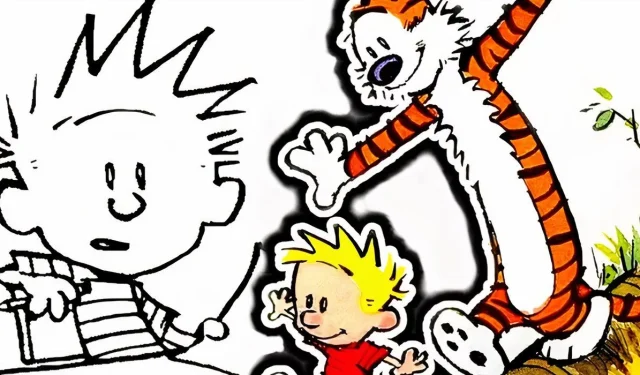
Calvin and Hobbes has become a cherished comic strip not only for its distinctive art style and clever humor but also for its profound exploration of life through the lens of a child’s perspective. Unlike typical gag-driven comics, this series fosters deeper character development, allowing humor to emerge organically. Occasionally, it even delves into insightful social commentary, offering readers thought-provoking reflections on contemporary issues.
While many comic strips rely heavily on one-liners and quick jokes, Calvin and Hobbes successfully transcends these trends by investing in its characters’ personalities. This unique approach enhances the humor, making it relatable and more substantial. Here, we highlight ten moments when Calvin and Hobbes provided unexpectedly sharp observations about society.
10. Living in the Moment
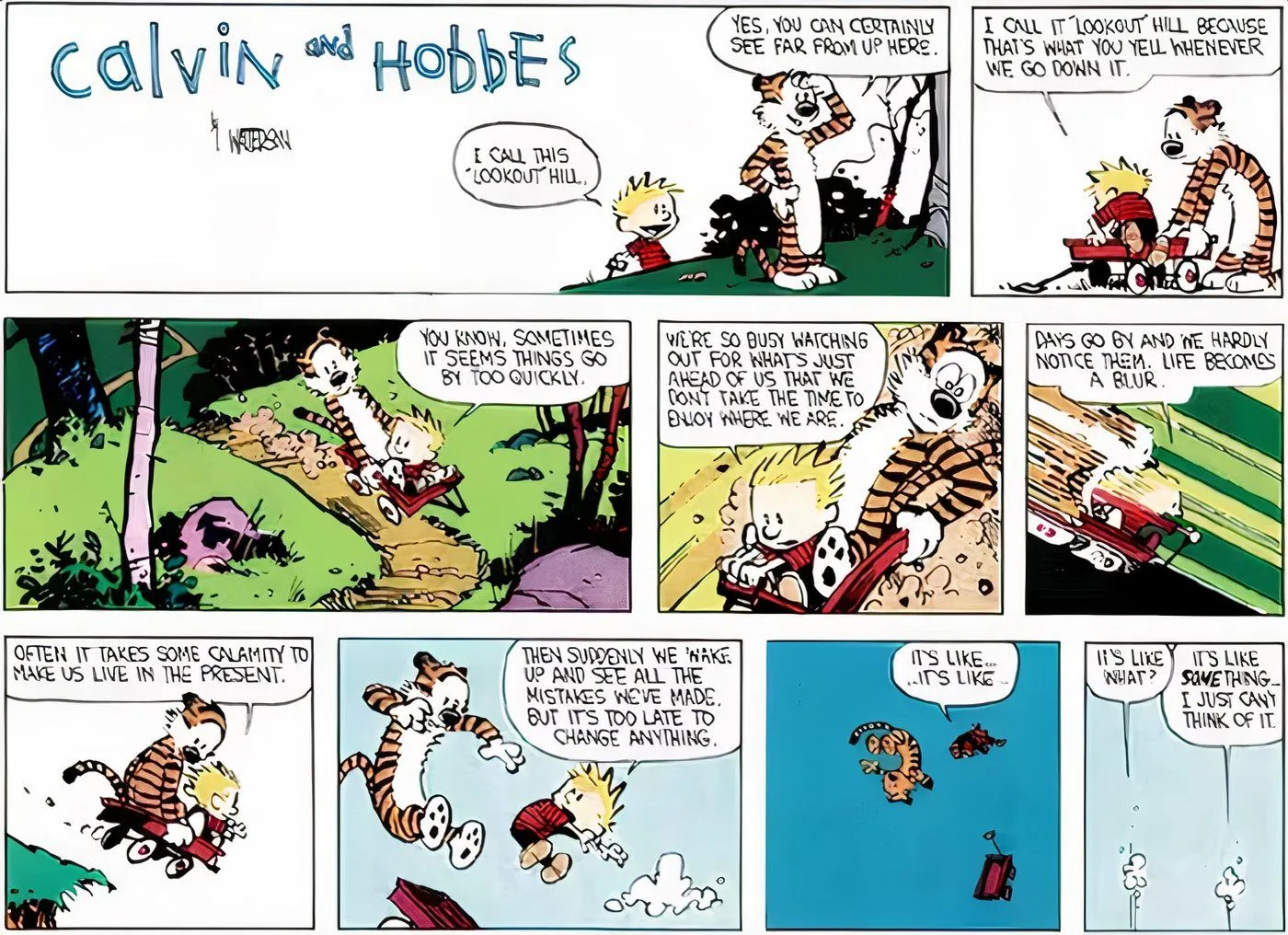
During a thrilling ride in their wagon, Calvin shares his thoughts with Hobbes about how society often fails to appreciate the present. This moment serves as both a humorous self-awareness and a critique of a broader societal issue: too many individuals let their lives pass by in pursuit of conformity. Many labor in jobs that bring them little joy, merely to obtain material possessions that offer no genuine satisfaction.
9. Modern Friendships
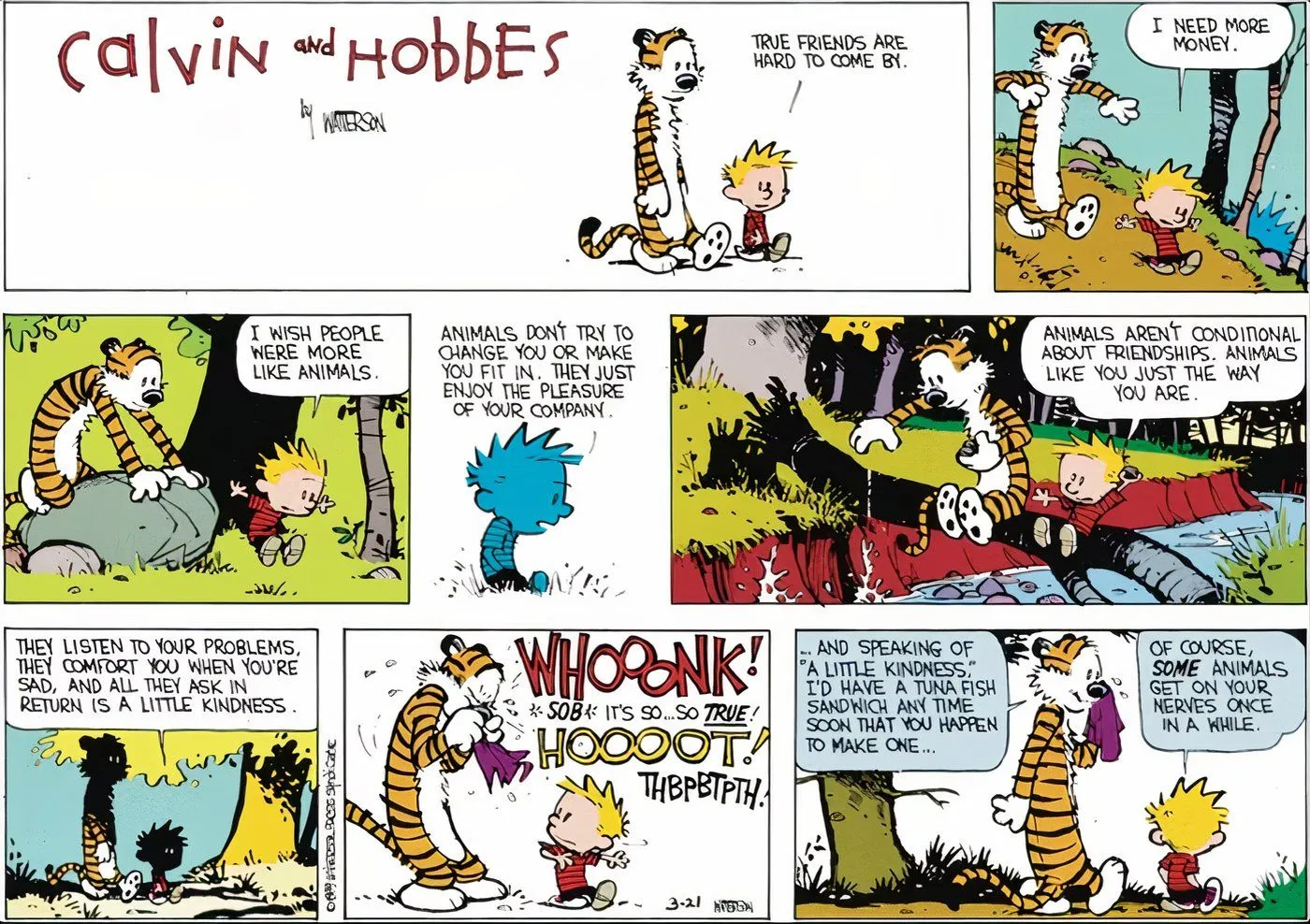
As they stroll through their beloved woods, Calvin muses on the nature of friendships, lamenting that genuine connections have been replaced by superficial relationships driven by status and wealth. He contrasts human friendships with those of animals, highlighting that true friendship should be based on sincerity rather than personal gain.
8. The Nature of Children’s Television

In another striking illustration, Calvin shouts “Pander to me!” as he eagerly anticipates his favorite television show, exposing the problematic relationship between entertainment and advertising designed for children. While he recognizes the manipulation inherent in these programs, many children remain blissfully unaware, drawn in by flashy graphics and catchy jingles.
7. “Enmity Sells”

Calvin devises a strategy for a fundraising letter that hinges on portraying opponents as adversaries, demonstrating how conflict generates financial support. His cynical observation, “Enmity sells,”aptly critiques how divisive tactics have become commonplace in fundraising and politics, revealing an uncomfortable truth about societal behaviors.
6. The Grueling Facts of Life

In a moment of dark irony, Calvin is confronted with the stark reality that his future work life may feel even more oppressive than school. This dialogue captures the cyclical nature of adult responsibilities, highlighting the struggle many face as they transition from mandatory education into the workforce.
5. Societal Empathy
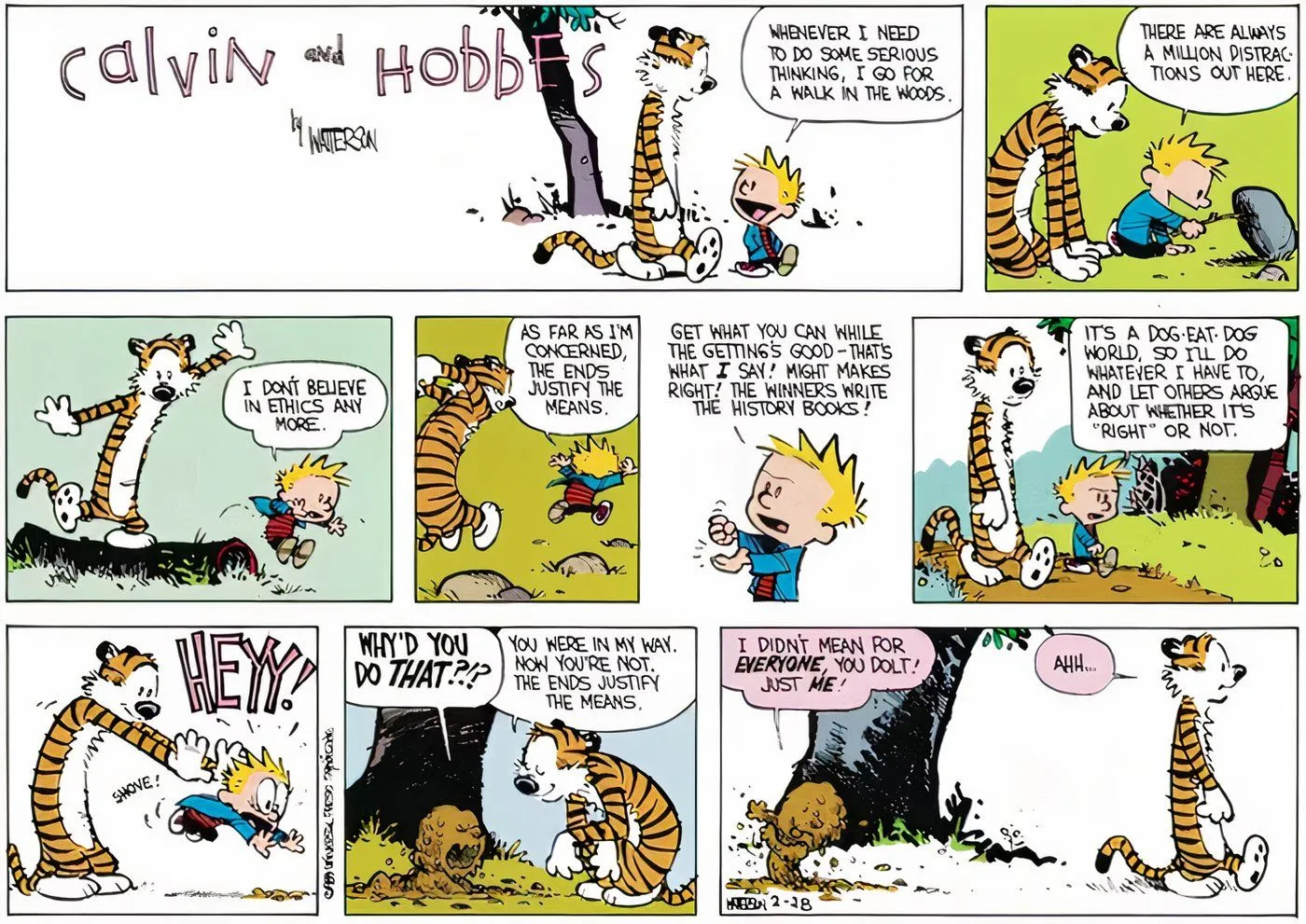
When Calvin proclaims his intention to abandon empathy in favor of selfishness, Hobbes effectively teaches him a lesson by playfully pushing him into the mud. This encounter highlights the necessity of empathy within society and critiques the competitive mindset prevalent today, making it clear that self-serving behavior can lead to negative consequences.
4. The Desire to ‘Grow Up’

In a candid moment of vulnerability, Calvin’s dad experiences an existential crisis, reflecting on the misconception that age equates to wisdom in handling life’s complexities. His realization resonates with the rushing desire to transition into adulthood, serving as a reminder that growing up does not guarantee answers to life’s challenges.
3. The Downside of Being a Kid
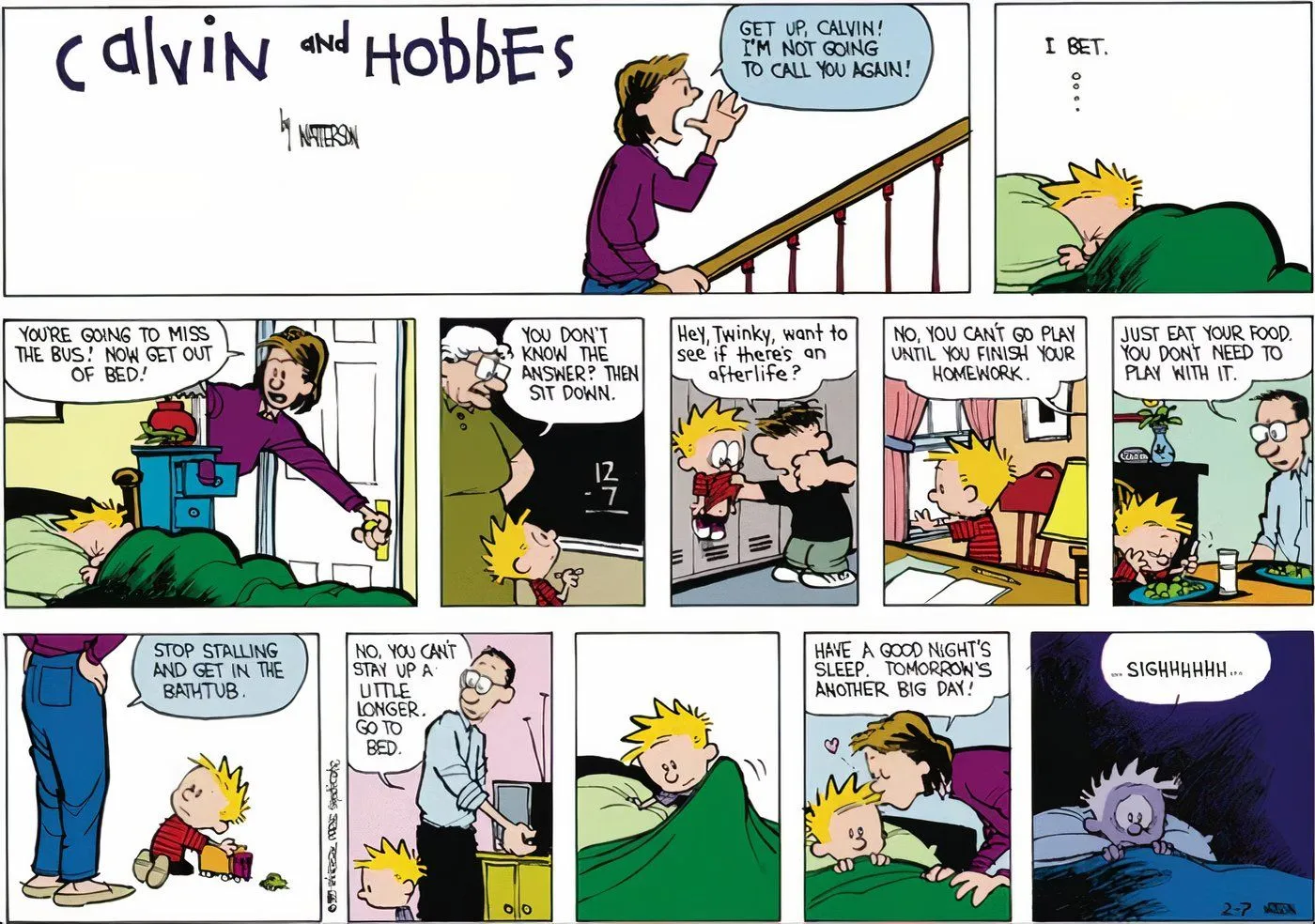
Through a day-in-the-life depiction, Calvin’s struggles with adult expectations and societal routines vividly illustrate the challenges faced by children. The relentless cycle of school, homework, and chores sheds light on a common plight among youngsters, sparking conversations around nurturing healthier environments for their growth.
2. Societal Conformity

Calvin reluctantly joins a softball team to escape ridicule, highlighting the pressures of societal conformity. His father’s assertion that team sports foster character only emphasizes the internal conflict of wanting to fit in while grappling with personal desires—a shared sentiment among many.
1. Meta Perspective on Social Commentary

In a comedic yet insightful moment, Calvin and Hobbes discuss how comic strips can tackle serious issues while appearing to be simply entertainment. This meta-commentary underscores the significance of comics in reflecting and critiquing societal norms, exemplifying how Calvin and Hobbes effectively blends humor with meaningful commentary.




Leave a Reply